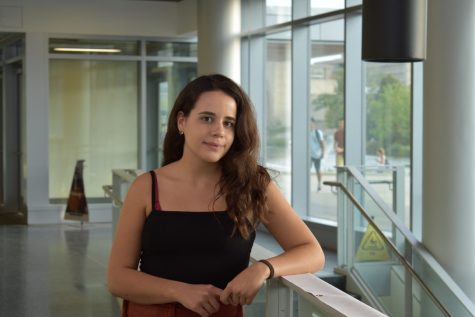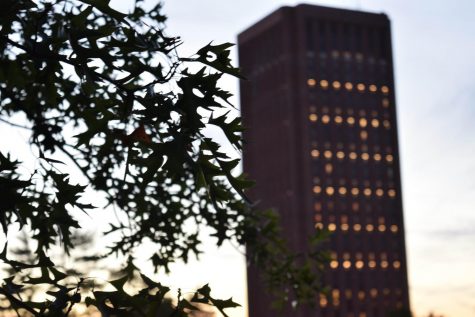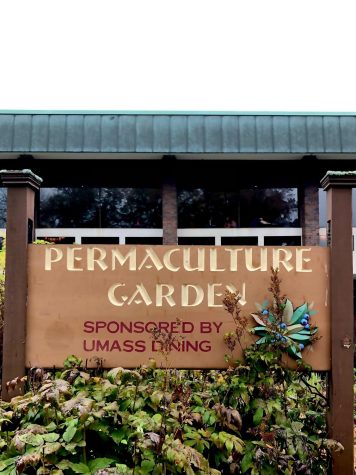Massachusetts 2050: A Warming State a Q&A with UMass Professor and writer of United Nations IPCC Climate Report
IPCC scientist breaks down the effects of climate change in Massachusetts, and the potentiality for future hope

Editor’s Note: Amherst Wire is launching a new series, “Massachusetts 2050: A Warming State” to investigate the effects of climate change in our communities and how our state is responding to its imminent impact. The series is targeted to ask specific, in-depth questions on what climate change looks like now and will look like in the future, and the hope there is if a change is instilled amongst the public. This series began production a little over a year ago, but was interrupted due to the COVID-19 pandemic and due to this, it contains initial contributions from some of the Amherst Wire alumni.
From Boston Harbor to Mt. Tom, climate change is already inching across Massachusetts with the potential of much more severe impacts by 2050.
In a 2019 report, the Intergovernmental Panel on Climate Change (IPCC) projected that sea-levels are rising at one-seventh of an inch a year, which is 2.5 times faster than the rate from 1900 to 1990.
According to Robert DeConto, UMass Amherst geoscience professor and one of the writers of the 2019 United Nations IPCC Report on “The Ocean and Cryosphere in a Changing Climate,” this is a big deal.
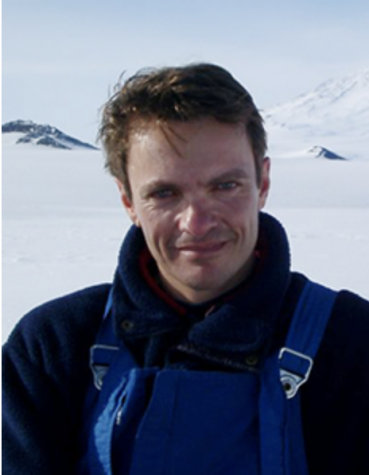 DeConto, left, has done climate research since he was in graduate school, after studying geology in college. His early research focused on oceanography and atmospheric science, developing and analyzing models of ice sheets in Greenland and Antarctica and studying what these models may indicate for the future.
DeConto, left, has done climate research since he was in graduate school, after studying geology in college. His early research focused on oceanography and atmospheric science, developing and analyzing models of ice sheets in Greenland and Antarctica and studying what these models may indicate for the future.
“As soon as we started publishing papers about future sea-level rise, there are all these obvious impacts on places like Massachusetts and really low-lying coastlines and islands all over the world,” said DeConto. “My work has become, over the years, more and more focused on climate impacts.”
The Amherst Wire sat down with UMass’s own climate change expert to ask 10 questions to bring clarity to what these numbers mean, how exactly it will affect Massachusetts and what people can do to help.
This interview has been edited and condensed for clarity.
Can you speak on some impacts of climate change in Massachusetts in the next 50 to 100 years?
Sea level is on the rise and it’s not slowing down anytime soon. Boston will be impacted by sea-level rise faster than other places around the world.
What’s important to note is that the rate that the sea level is rising is increasing, so there’s an acceleration.
Boston is a special case because it sits in a place on the East Coast that is experiencing faster sea-level rise than other places around the world.
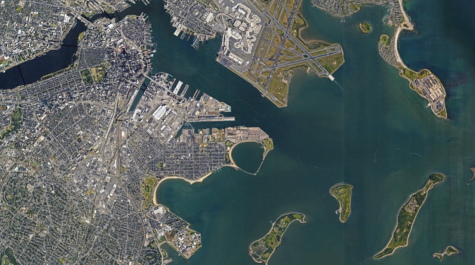
The main sources of sea-level rise are the fact that the ocean is taking up a lot of heat right now. As oceans get warmer, the density of the ocean waters goes down. The oceans basically take up more space. The other main mechanism is the fact that glaciers and ice-caps all over the world are melting and that water finds its way into the ocean. That makes the oceans rise too. Sea-level rise doesn’t happen by the same amount everywhere.
In the last century, from 1900 to 2000, the sea-level rose about 15 centimeters. That doesn’t sound like a lot. The average rate of sea-level rise was a couple of millimeters per year in the 20th century. The rate is twice that, actually a little bit more. If you look at the last roughly five years, the rate is more than double what it was in the 20th century, so there has been a recent sharp uptick in the rate of sea-level rise.
For the New England coastline, new projections informed, in part by the kind of models that we developed here [at University of Massachusetts Amherst], suggest that sea-levels could rise to more than a meter above the levels we see today. That’s by 2100. That’s not very far-away.
A meter of sea-level rise would be really, really impactful on the Northeast.
For example, the impacts of a rising coastline can increase the frequency of storm surges and nuisance flooding during really high tides. Places all up and down the East Coast experience flooding that is impactful on local businesses. We’re worried about the frequency of a big storm event, like a Hurricane Sandy event, happening more and more often.
How will climate change impact Central Massachusetts in particular?
The warming that is causing sea-levels to go up is also going to cause issues here in the valley. There could be changes in water availability. There could be extreme flood events. We are seeing changes in the distribution of like when rain and snow happen during the course of the year. The winters are probably going to become shorter and they might move a little later in the year.
All those things are going to start to impact what people can grow here in the valley. It’s going to have some impacts on what kinds of insects live here that could have some implications for human health, things like tick-borne diseases. Things like maple trees, that provide maple syrup here in southern New England, in 100 years that industry might have to move North.
We see the distribution of fisheries in the ocean shifting as the oceans get warmer. The lobster fishery has basically moved out of Long Island South and assumed North. As the oceans have gotten warmer, we’re probably going to being to see similar sorts of impacts.
In terms of agriculture, New England is in pretty good shape. It’s not oppressively hot here and there’s water, but there are going to be impactful changes. At some point, farmers will have to look at altering the timing of when they work, when they plant, when the season begins and ends in the crops that they grow. If there’s an impact because of warming on insects, I imagine that [agriculture] will be impacted in terms of pests and pest control.
Even though the Pioneer Valley is sort of insulated from the ocean and we have a lot of water, things are definitely going to be impacted here too. It’s not just the coastline.
In Massachusetts, is there potential that some communities may see benefits from climate change before it gets worst?
You could probably find specific people that would be impacted in a positive way. Maybe you are somebody that grows some type of apple that is on the edge of being able to survive in the winters that we have today. In 20 years, they’re going to having end up chosen the right types of apples, the right type of grapes or some other crop.
I think the detriments so outweigh those little isolated, positive things here and there that it’s really hard to make an argument for any of this being a good thing.
What changes need to happen to change course from worst-case-scenario to a best-case-scenario?
[The IPCC report] makes it pretty clear that changes need to happen soon. There’s a real sense of urgency in the report on when we start reducing emissions. What it’s really going to take is a complete reorganization of our global Energy Systems. So where we produce electricity, whether it comes from coal and oil versus renewables like solar and wind, it’s going to take a lot of coordination. I think between the more resourced parts of the world like the United States and other nations to make them more efficient. It’s ultimately about energy and a transition to a low-carbon future.
It’s a transition from fossil-fuel-based energy production to renewables
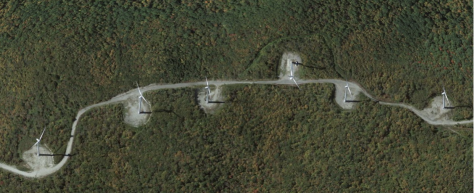
Where does the potentiality for change come in?
In a perfect world, it comes from two directions. It comes from the bottom-up and the top-down. I think there is a lot of bottom-up happening right now.
At some point, when generated electricity and solar-based electricity becomes cheaper and cheaper, there’s going to be a bigger demand for [less-taxing] energy. That’s an example of a natural transition where the markets and local economies drive the change in the transition.
In the meantime, you want your government to be proactive in incentivizing this transition to happen sooner rather than later. There’s a strong sense of urgency because climate change is changing faster than even we have been predicting.
Do you think the United Nations has been doing enough? Why is climate change so hard to address politically?
The United Nations is doing so much. They’re doing it in terms of their climate work, really, on what is in, a relative sense, like a shoe-string budget. The people that are writing these reports and trying to provide information to policy-makers all around the world are doing the world an incredible service. I’ve been so impressed with everybody I’ve met through my work on the IPCC, for example.
It’s hard because you have so many different world-views. We have member nations in the UN that have economies that are dominated by fossil fuel production, in petrochemicals and industries that I think are really still reliant on using fossil fuels.
At the same time, you have small island nations that are literally going under-water. They believe the science. They understand the science and they are saying “hey, this on-going, global fossil fuel production is making us lose our national identity.”
There’s going to be really dramatic cultural loss in some places. Places that have been inhabited by people for a very long time are going to have to move.
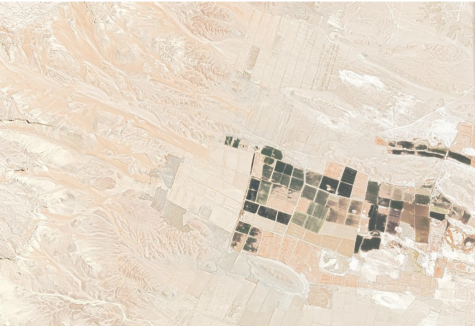
So, it turns out that the countries that are major emitters of fossil fuels and greenhouse gases, like the United States, are very slow to change.
If you look at the last 100 years, for example, the United States because it has just been so strong industrially for so long, we are the main contributor to the extra Co2 that’s in the atmosphere today versus at the beginning of the Industrial Revolution. Now, in countries like China and India, with an expanding middle class, people in those countries want all the same privileges and freedoms that we’ve been enjoying in the United States for a long time: their own cars, to be able to heat up their houses, to have air-conditioning in the summer and that takes up a lot of energy.

What can students do to help?
It’s a really tough job and it is complex. There are no easy answers in terms of what people can do. The main thing I tell people to do is to vote. That’s the main power right now, especially in the youth climate movement.
With Greta, it’s amazing how one person has really been so impactful on people’s perspectives. The fact that there are just so many more people now that really care. Greta’s generation is just about to turn the voting age and that’s where the power is.
Are we too late? Is there hope?
I would say there should be a really strong sense of urgency.
The blue line [in the IPCC report] is the hope. The difference is when you look at these two curves, the blue line shows that it’s going up and things are going to be tough. But then, you see the red line go like this. The hope is that there’s still this huge difference between the red and the blue line in the future. The difference between those two lines is the role of policy.
A lot of the science in the last few years is really leading to this notion that we’re just a few years away, on our current rates of emissions, from having put enough carbon in the atmosphere to reach a world that’s one and a half degrees warmer than today.
That was one of the big aspirations of the Paris Climate Agreement, to keep the world hopefully below one and a half degrees warmer than it was in the preindustrial times. We’re basically right there now.
The question is, okay, so if we don’t do anything for another 10 years or another 20 years, then we’re talking about letting the world two degrees warmer than today. Once you start approaching a world that’s on average two degrees warmer than today, that’s the global average. We’re flirting with this kind of global temperature that could trigger some really big, bad changes.
We’re hopeful that these severe changes and impacts wouldn’t happen unless the world did maybe approach two degrees warmer than preindustrial times. The science is showing that we are like knocking on the door of reaching those global temperatures if we continue down the same road that we’re on now. It’s time to be electing people who take this seriously and appreciate the science and embrace it.
In terms of hope, there’s so much opportunity in this. It might not be that the future of jobs in West Virginia is going to be coal mining, but it might be a different industry. It might be building solar panels and wind turbines. There’s so much many, great opportunities right now to jump on the next generation of energy production and in green economies of all kinds right now. I see a lot of positives in this. People who are thinking a little bit outside the box should be able to find tons of ways to have a really fruitful future in doing things that are beneficial to the climate rather than detrimental.
Can you give an example of a time that you noticed climate change?
In 1999, when I first moved here, I lived in Amherst. Mount Tom used to be a viable ski area. It’s almost kind of hard to imagine now.
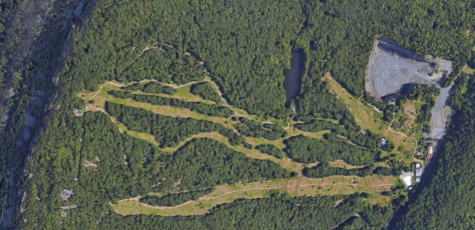
Also, in the summertime, I tried to spend a lot of weekends down on the water, on the ocean. I’m really into sailing and I have a sailboat on the coast. I grew up in Boston and it’s like a totally different world. The water is so warm now, compared to the way it used to be.
Another thing I noticed that really bums me out is that there’s plastic in the water, like everywhere. I’m constantly seeing stuff floating. Ocean plastics is a really serious problem. You see that even here in New England. The beaches are full of trash and it’s like just one-time-use plastic bottles. In my lifetime, I have seen pretty remarkable changes in New England.
The original contributor of this story is Caeli Chesin, who can be reached on Twitter @caeli_chesin
If you have an idea for a future article in the series or would like to contribute, please email Emilee Klein at [email protected] or follow her on Twitter @emileeklein

